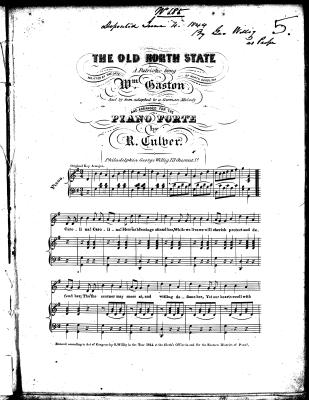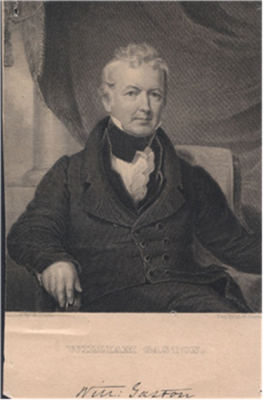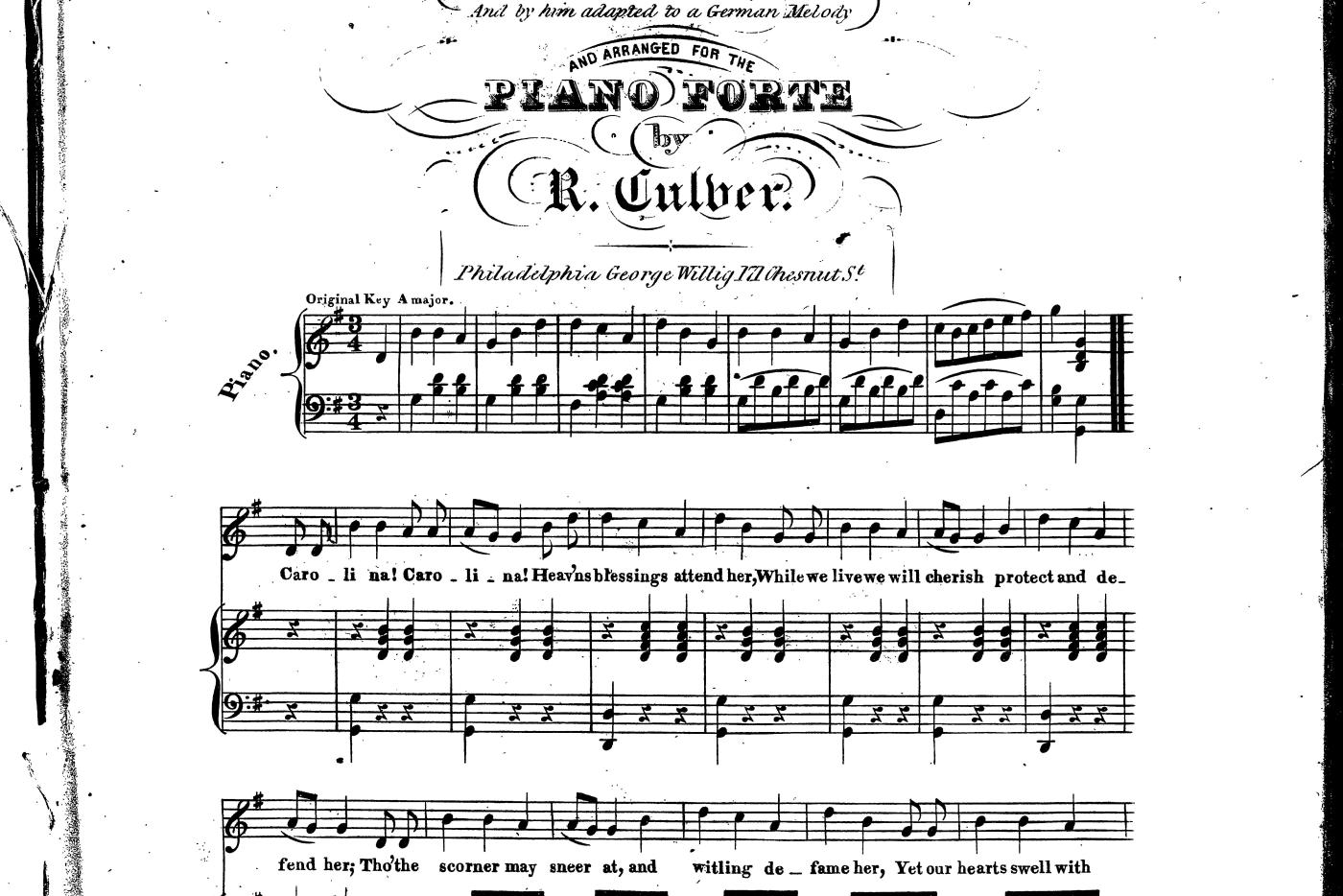Author: Adrienne Berney, Chelsea Kiefer, and Alana Gomez
“The Old North State” has a rich history that reflects a time of transformation and pride in North Carolina. The first written reference to the phrase appeared on page five in Joseph Seawell “Shocco” Jones’s 1834 book Defence of the Revolutionary History of the State of North Carolina from the Aspersions of Mr. Jefferson, published in both Boston and Raleigh.

In the mid-1830s, the state was undergoing significant change. The government was reforming through constitutional amendments, and a new capitol was being rebuilt after the 1831 fire. Leaders sought ways to strengthen state identity, and one idea was to have a state song to add to rituals and events.
William Gaston, a prominent lawyer, legislator, and statesman, wrote the lyrics that would become North Carolina’s official state song. His composition, “The Old North State,” quickly became a cherished part of official ceremonies and public celebrations.
Gaston had already made a name for himself in public service. He was elected as a state legislator in 1807, later served as a U.S. representative (1813–1817), and became a State Supreme Court judge in 1833. Despite constitutional restrictions that barred anyone who did not believe in “the Truth of the Protestant Religion” from holding public office, Gaston, a Catholic, along with other state leaders, decided he was fit to serve.
As a judge, Gaston was known for his progressive decisions, upholding the rights of enslaved persons to defend themselves and defining citizenship for the emancipated with rights guaranteed by the constitution.

Elected by Craven County as its representative to the 1835 constitutional convention, Gaston advocated for both free Black suffrage and religious freedom. While his efforts to eliminate all religious tests for office were unsuccessful, he succeeded in changing the language of the constitution from “Protestant” to “Christian,” marking a meaningful step toward inclusion.
That same year, in Raleigh, Gaston wrote the lyrics to “The Old North State,” adapting the melody from a tune he heard performed by Swiss bellringers. This blend of local pride and international influence created a song that would endure as a symbol of North Carolina’s identity.
Today, “The Old North State” stands as a lasting tribute to the state’s history, resilience, and the leaders who shaped its early identity.
Lyrics:
"Carolina! Carolina! Heaven's blessings attend her!
While we live we will cherish, protect and defend her;
Though the scorner may sneer at and witlings defame her,
Our hearts swell with gladness whenever we name her.
Hurrah! Hurrah! The Old North State forever!
Hurrah! Hurrah! The good Old North State!
Though she envies not others their merited glory,
Say, whose name stands the foremost in Liberty's story!
Though too true to herself e'er to crouch to oppression,
Who can yield to just rule more loyal submission?
Plain and artless her sons, but whose doors open faster
At the knock of a stranger, or the tale of disaster?
How like to the rudeness of their dear native mountains,
With rich ore in their bosoms and life in their fountains.
And her daughters, the Queen of the Forest resembling–
So graceful, so constant, yet to gentlest breath trembling;
And true lightwood at heart, let the match be applied them,
How they kindle and flame! Oh! none know but who've tried them.
Then let all who love us, love the land that we live in
(As happy a region on this side of Heaven),
Where Plenty and Freedom, Love and Peace smile before us,
Raise aloud, raise together, the heart-thrilling chorus!"
Sing Along! Listen to a recording of the tune by the N.C. Symphony from the State Archives collection. www.ncpedia.org/symbols/song.

